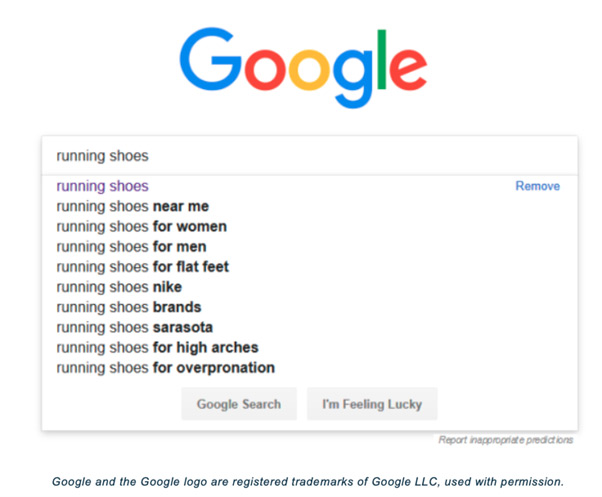
As the world embraces digital technology, search engine optimization has become increasingly vital for the success of businesses globally. Voice search, one of the most significant advancements in digital technology, is revolutionizing SEO strategies.
This blog post aims to explore the impact of voice search on SEO and provide insightful tips and strategies for optimizing websites and content for this new era.
Stay with us as we delve into this fascinating topic and equip you with the knowledge and tools necessary to keep your business ahead of the pack in the ever-changing SEO landscape.
The Growing Dominance of Voice Search
An increasing number of smartphone users and smart-assistant devices such as Amazon’s Alexa, Google Assistant, and Apple’s Siri have contributed to the rapid growth of voice search worldwide. Furthermore, voice search makes up nearly 27% of queries on Google’s mobile app and Android devices.
With such a significant shift in search behavior, businesses must adapt to the changing SEO environment by optimizing their websites and content for voice search.
How Does Voice Search Work?
Voice search works by analyzing a user’s speech patterns and interpreting the query into text that can be read by a search engine.
To do this, voice search uses natural language processing (NLP) technology to interpret the user’s query and match it to information in its database.

Voice search is most commonly used on mobile devices, such as smartphones, tablets, and voice-activated speakers like Google Home and Amazon Echo.
Understanding the Differences in Voice and Text Queries
Text-based searches mostly consist of terse, concise queries, whereas voice search queries tend to be more conversational and detailed in nature.
For instance, a text-based search may read “weather today,” while a voice search would be “what’s the weather like today?”
As a result, long-tail keywords and natural language phrasing are becoming essential elements for SEO optimization.
To rank higher in voice search results, focus on optimizing content to fit conversational query patterns, contextually relevant keywords, and natural language processing (NLP).
Localized Searches and the Rise of 'Near Me' Queries
Voice search has significantly impacted local SEO, as most voice queries are aimed at finding local businesses and services.
Users often add “near me” when they seek nearby establishments.
Therefore, businesses must optimize their “Google My Business” listings, ensuring that vital information such as addresses, phone numbers, and operation hours are accurate and up-to-date.

Additionally, including “near me” and specific local details in content and metadata can help businesses capitalize on this surge in localized voice search queries.
Speed and User Experience: The Key to Success
The adoption of Google’s mobile-first indexing strategy stresses the need for speedy and mobile-responsive websites.
Since voice search predominantly occurs on mobile devices, businesses must optimize their websites for mobile use, ensuring fast load times and a seamless user experience.
Focus on implementing user-friendly web designs, incorporating simple navigation, and minimizing loading times through image optimization and website compression.
A fast and efficient website will not only rank higher in SERPs but also provide users with a pleasant browsing experience, contributing positively to your brand’s reputation.
What Are the Benefits of Using Voice Search for SEO?
According to SEO Singapore Services, one of the leading SEO agency in Singapore, voice search can offer several benefits to website owners and SEO professionals, including:
Increased Reach
As more people turn to voice search as their preferred method of searching online, optimizing your content for voice search will help you reach a wider audience.
Personalized Results
Voice searches produce more personalized results based on the user’s prior search history and personal preferences, so optimizing for voice search may result in higher rankings for specific keywords related to your product or service.
Relevant Content
In addition to providing personalized results, voice searches also serve up more relevant content than traditional text-based searches.
This means that if someone is looking for something specific, they are more likely to find what they need through a voice search than through a text-based search engine query.
Improved UX
Optimizing your website and content for voice search can improve the overall user experience by making it easier and faster to find what they are looking for without having to type out long queries into a text box or click through several pages of results.

Easier Navigation
Utilizing natural language processing (NLP) when creating content optimized for voice search helps make navigating websites easier as users don’t have to remember specific terms or phrases to find what they need quickly and efficiently.
Short Response Time
Voice searches provide quick response times compared to traditional text-based searches due to the way they interpret information differently from a standard query which requires multiple steps before returning any results.
Improved Brand Awareness
Optimizing with keywords related specifically to your products or services will help increase brand awareness by helping customers identify you quickly when conducting a voice search instead of scrolling through tons of options before finding yours.
More Targeted Ads
Voice searchers tend to be very specific about what they are looking for which helps advertisers create more targeted ads tailored specifically towards those who are interested in their product or service.
Increased Conversions
The combination of quick response times, easy navigation, improved UX, and targeted ads will ultimately lead to increased conversions as customers who use voice searches are more likely to engage with businesses that offer exactly what they are looking for quickly and easily.
Tips and Strategies to Optimize Your Website’s Content for Voice Search
Optimizing content for voice search isn’t difficult, but it does require some effort. Here are some tips and strategies to help you get started:
Use Natural Language
When creating content, use natural language that is easy to understand. This will make it easier for voice search algorithms to interpret your content.
Focus on Long-tail Keywords

To really capture the attention of your target audience, optimizing for long-tail keywords is key. These phrases tend to be more specific and are frequently used in voice searches – meaning they could give you a real competitive edge over other web content.
Include FAQs, Questions & Answers
Answering common queries with concise and relevant content can help websites rank higher for voice search queries.
So, it’s important to include questions and answers on your website.
The primary goal should be to answer the questions that users might have. To achieve this, consider including FAQs on key landing pages, product pages, and blog articles.
Include Featured Snippet
Including featured snippets is one of the tips to help make your website easier to find using voice search.
It means you should add a summary of an answer to a question on your website so that the voice search can pick it up.
It should not be more than fifty words and should have an appropriate heading.
Optimize for Local Searches
Local businesses can benefit from optimizing their content for voice searches by including their city or region in their keywords and descriptions.
This will help voice search algorithms pull up the most relevant information for local searches.
What You Need To Do To Get Ready For The Shift Towards Voice Searches
To get ready for the shift towards voice searches, website owners and SEO professionals need to focus on creating content that is optimized for voice searches.
This means using natural language, focusing on long-tail keywords, including questions and answers in content, and optimizing for local searches.
Also, strive to achieve Position 0, which grants your content the best chance of being selected.
By doing this, websites can increase their visibility in search engine results and improve the overall user experience.
Conclusion
As voice search continues to grow in popularity, adapting your SEO strategies to account for this trend becomes increasingly important.
By understanding the distinction between text and voice queries, optimizing for local searches, ensuring a fast and responsive user experience, and creating content that readily answers questions, businesses can significantly enhance their SEO game.
With this knowledge and the right implementation, you’re well on your way to mastering the ever-evolving SEO landscape and keeping your business ahead of the competition.
Learn how voice search optimization works by clicking the link below.